Грег Иган - Distress
Здесь есть возможность читать онлайн «Грег Иган - Distress» весь текст электронной книги совершенно бесплатно (целиком полную версию без сокращений). В некоторых случаях можно слушать аудио, скачать через торрент в формате fb2 и присутствует краткое содержание. Жанр: Фантастика и фэнтези, на английском языке. Описание произведения, (предисловие) а так же отзывы посетителей доступны на портале библиотеки ЛибКат.
- Название:Distress
- Автор:
- Жанр:
- Год:неизвестен
- ISBN:нет данных
- Рейтинг книги:3 / 5. Голосов: 1
-
Избранное:Добавить в избранное
- Отзывы:
-
Ваша оценка:
- 60
- 1
- 2
- 3
- 4
- 5
Distress: краткое содержание, описание и аннотация
Предлагаем к чтению аннотацию, описание, краткое содержание или предисловие (зависит от того, что написал сам автор книги «Distress»). Если вы не нашли необходимую информацию о книге — напишите в комментариях, мы постараемся отыскать её.
Distress — читать онлайн бесплатно полную книгу (весь текст) целиком
Ниже представлен текст книги, разбитый по страницам. Система сохранения места последней прочитанной страницы, позволяет с удобством читать онлайн бесплатно книгу «Distress», без необходимости каждый раз заново искать на чём Вы остановились. Поставьте закладку, и сможете в любой момент перейти на страницу, на которой закончили чтение.
Интервал:
Закладка:
It was just after midday as we touched down in the tiny capital. There was no umbilical; we walked across the sweltering tarmac. The melatonin patch on my shoulder, pre-programmed by my pharm, was nudging me relentlessly toward Stateless time, two hours later than Sydney’s— but Dili was two hours in the other direction. I felt jet-lagged for the first time in my life, physically affronted by the sight of the blazing midday sun—and it struck me just how eerily effective the patch ordinarily was, when I could alight in Frankfurt or Los Angeles without the slightest sense of violated expectations. I wondered how I would have felt if I’d had my hypothalamic clock slavishly synched to the local time zones, all the way along the absurd loop of my flight path. Better, worse… or just disturbingly normal, one part of my perception of time laid bare as the simplest of biochemical phenomena?
The single-story airport building was crowded—with more people seeing off, or greeting, travelers than I’d ever witnessed in Bombay, Shanghai, or Mexico City, and more uniformed staff than I’d seen in any other airport on the planet. I stood in line behind Indrani Lee to pay the two-hundred-dollar transit tax on the near-monopoly route to Stateless. It was pure extortion… but it was hard to begrudge the opportunism. How else was a country this size supposed to raise the foreign exchange it needed in order to buy food? I hit a few keys on my notepad, and Sisyphusreplied: with great difficulty.
East Timor had none of the few exotic minerals which still needed to be mined to meet net global demand after recycling and it had been stripped long ago of anything which might have been useful to local industry. Trade in native sandalwood was forbidden by international law, and in any case engineered plantation species produced a better, cheaper product. A couple of electronics multinationals had built appliance-assembly factories in Dili, during a brief period when the independence movement appeared to have been crushed, but they’d all closed in the twenties, when automation became cheaper than the cheapest sweated labor. That left tourism and culture. But how many hotels could be filled, here? (Two small ones; a total of three hundred beds.) And how many people could make their living on the world nets as writers, musicians, or artists? (Four hundred and seven.)
In theory, Stateless faced all the same basic problems, and more. But Stateless had been renegade from the start—its very land built with unlicensed biotech. And no one went hungry there.
It must have been the jet-lag, but it only dawned on me slowly that most of the people in the airport weren’t there to greet friends, after all. What I’d mistaken for luggage and gifts was merchandise; these people were traders and their customers: tourists, travelers, and locals. There were a couple of stuffy-looking official airport shops in one corner… but the whole building seemed to double as a marketplace.
Still in the queue, I closed my eyes and invoked Witness; a sequence of eyeball movements woke the software in my gut, which generated the image of a control panel and fed it down my optic nerve. I stared at the LOCATION slot on the panel, which still read SYDNEY; it obligingly blanked. I mimed vertical one-handed typing, and entered DILI. Then I looked squarely at BEGIN RECORDING, highlighting the words, and opened my eyes.
Witnessconfirmed: "Dili, Sunday, April 4th, 2055. 4:34:17 GMT." Beep.
The Customs Department collected the transit tax—and apparently their hardware was down. Instead of our notepads dealing with everything via a brief exchange of IR, we had to sign papers, show our physical ID cards, and receive a cardboard boarding pass with an official rubber stamp. I’d been half expecting some petty harassment if the opportunity arose, but the Customs officer, a softly spoken woman with a dense Papuan frizz beneath her cap, gave me the same patient smile as she’d given everyone else, and processed my paperwork just as swiftly.
I wandered through the airport, not really looking to buy anything, just filming the scene for my scrapbook. People were shouting and haggling in Portuguese, Bahasa and English—and, according to Sisyphus, Tetum and Vaiqueno, local languages undergoing a slow resurrection. The air conditioning was probably working, but the body heat of the crowd must have almost balanced its effect; after five minutes, I was dripping with sweat.
Traders were selling rugs, T-shirts, pineapples, oil paintings, statues of saints. I passed by a stall of dried fish, and had to concentrate to keep my stomach from heaving; the smell was no problem, but however many times I confronted it, the sight of dead animals offered for human consumption still left me reeling, more than a human corpse ever did.
Engineered crops could match or exceed all the nutritional benefits of meat; a small flesh trade still existed in Australia, but it was discreet and heavily cosmeticized.
I saw a rack of what looked like Masarini jackets, on sale for a tenth of the price they would have fetched in New York or Sydney. I waved my notepad at them; it found one in my size, interrogated the tag in the collar, and chimed approval—but I had my doubts. I asked the thin teenage boy who was standing by the rack, "Are these real authentication chips, or…?" He smiled innocently and said nothing. I bought the jacket, then ripped out the tag and handed the chip back to him. "You might as well get some more use out of it."
I ran into Indrani Lee beside a software stall. She said, "I think I’ve spotted someone else who’s headed for the conference."
"Where?" I felt a mixture of excitement and panic; if it was Violet Mosala herself, I was still unprepared to face her.
I followed Lee’s gaze to an elderly Caucasian woman, who was arguing heatedly with a trader selling scarves. Her face was vaguely familiar, but in profile I couldn’t put a name to it.
"Who is that?"
"Janet Walsh."
"No. You’re joking."
But it was her.
Janet Walsh was an award-winning English novelist—and one of the world’s most prominent members of Humble Science! She’d first come to fame in the twenties with Wings of Desire ("a delicious, mischievous, incisive fable"— The Sunday Times), a story set among an "alien race," who happened to look exactly like humans… except that their males were born with large butterfly wings growing out of their penises, which were necessarily and bloodily severed when they lost their virginity. The alien females (who lacked hymens), were all callous and brutal. After being raped and abused by everyone in sight for most of the novel, the hero discovers a magical technique for making his lost wings grow back—on his shoulders—and flies off into the sunset. ("Gleefully subverts all gender stereotypes"— Playboy.)
Since then, Walsh had specialized in morality tales concerning the evils of "male science" (sic), an ill-defined but invariably calamitous activity—which even women could perform if they were led sufficiently astray, although apparently that was no excuse to change the label. I’d quoted her pithiest comment on the subject in Gender Scrutiny Overload: "If it’s arrogant, hubristic, dominating, reductionist, exploitative, spiritually impoverished, and dehumanizing—what else should we call it but male? "
I said, " Why! Why is she here?"
"Hadn’t you heard? But you were probably traveling; I saw it on the net just before I left. One of the murdochs hired her as a special correspondent to cover the Einstein Conference. Planet News, I think."
" Janet Walsh is going to report on progress in Theories of Everything?" Even for Planet Noise, that was surreal. Sending members of the British royal family to cover famines, and soap opera stars to cover summit meetings, didn’t come close.
Читать дальшеИнтервал:
Закладка:
Похожие книги на «Distress»
Представляем Вашему вниманию похожие книги на «Distress» списком для выбора. Мы отобрали схожую по названию и смыслу литературу в надежде предоставить читателям больше вариантов отыскать новые, интересные, ещё непрочитанные произведения.
Обсуждение, отзывы о книге «Distress» и просто собственные мнения читателей. Оставьте ваши комментарии, напишите, что Вы думаете о произведении, его смысле или главных героях. Укажите что конкретно понравилось, а что нет, и почему Вы так считаете.
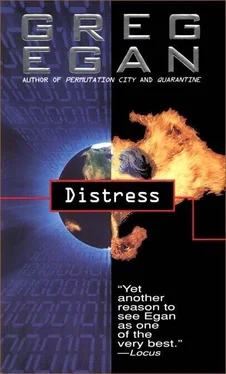

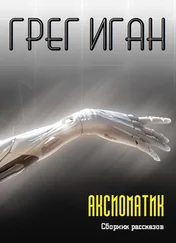

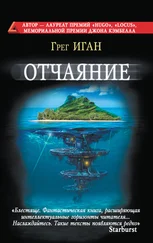

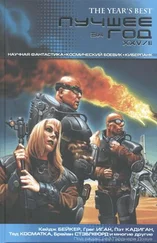

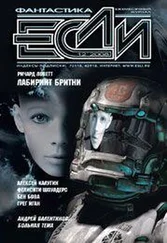

![Грег Иган - Рассказы [компиляция]](/books/419837/greg-igan-rasskazy-kompilyaciya-thumb.webp)
